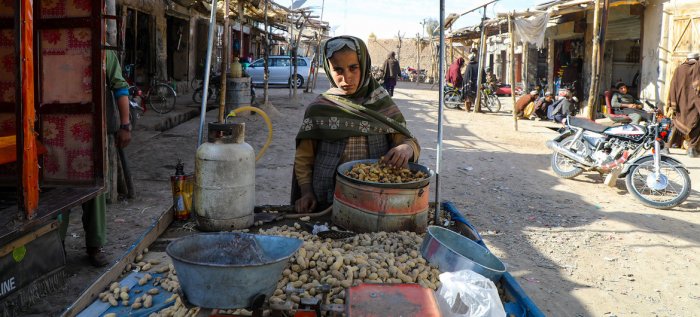
A senior UN official on Thursday urged donors to step up support for Afghanistan, where ongoing drought and increased military operations amid foreign troop withdrawal, are displacing scores of civilians, creating a growing humanitarian crisis.
Ramiz Alakbarov, UN Resident and Humanitarian Coordinator for Afghanistan, said a $1.3 billion appeal, launched earlier this year, is less than 40 per cent funded.
Some 18 million Afghans, or half the population, require assistance. A third of the country is malnourished, while half of all children under five are experiencing acute malnutrition.
The $450 million received so far, half of which came from the United States, falls far short of what is needed.
“Our plan is to provide assistance to at least 15.7 million people, and right now it will not be possible without these additional contributions,” said Mr. Alakbarov, speaking via videoconference to journalists in New York.
The developments are occurring as the deadline for foreign troops to fully withdraw from the country approaches.
The drought, the second in three years, and ongoing military response in the wake of a “spring offensive” by the Taliban, have uprooted some 270,000 people who have fled rural areas for urban centres.
In the northern city of Kunduz, for example, roughly 35,000 displaced people are being housed in schools and public buildings, and need food, water and sanitation. The fundamentalist Taliban who have been fighting the internationally-recognized central Government for years, have taken over all districts surrounding the city.
Meanwhile, neighbouring countries, such as Iran, have been deporting Afghan refugees from their territories. Humanitarians are also witnessing “very intensive” population movements in areas near the borders with Iran and Pakistan, which are now largely closed.
The closures have not yet affected humanitarians as aid stocks are sufficient to last through the end of August.
Source: UN News







